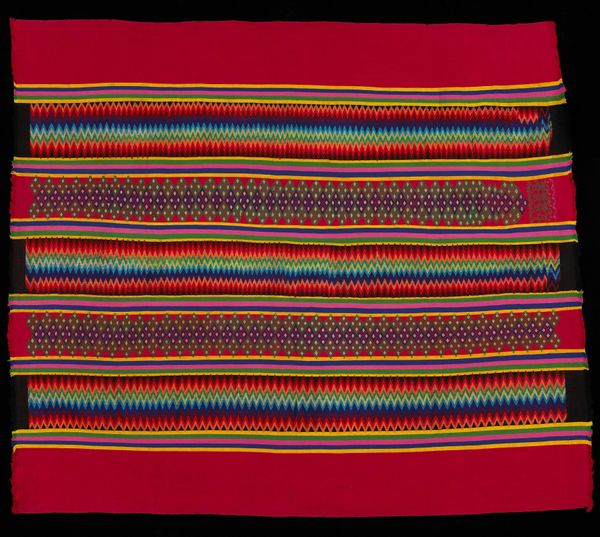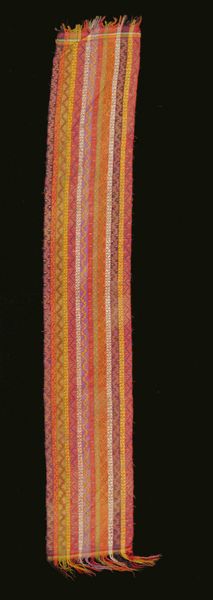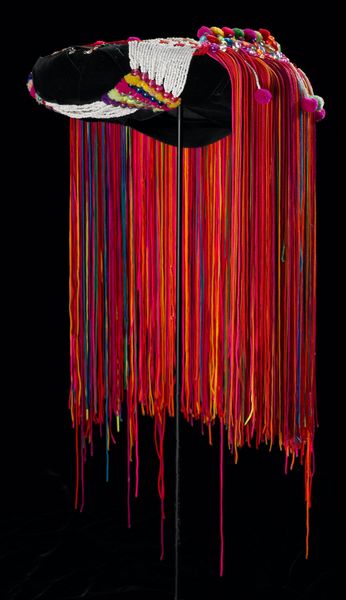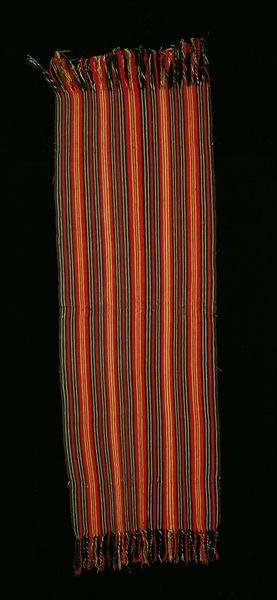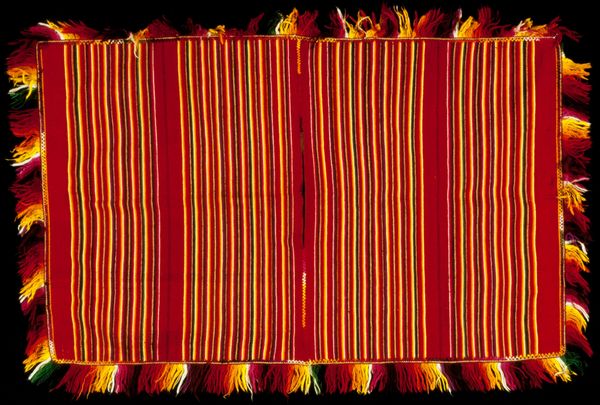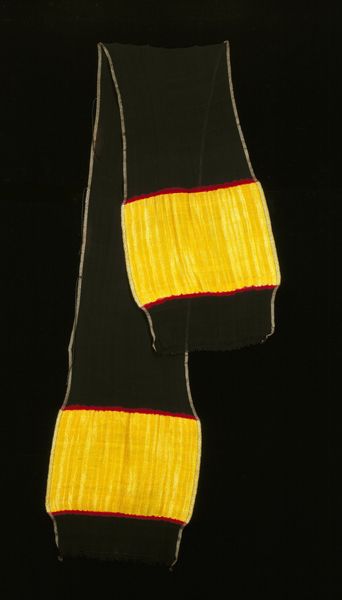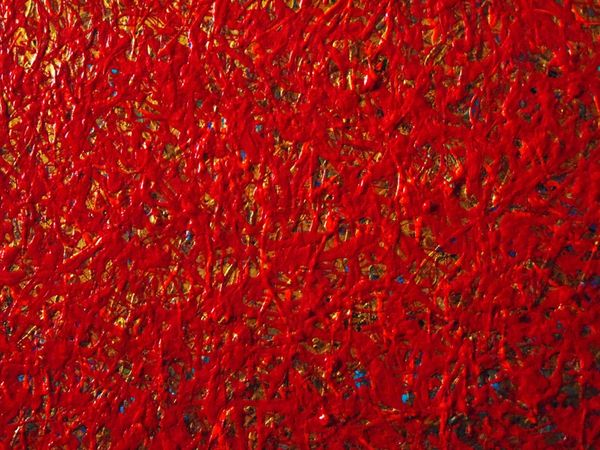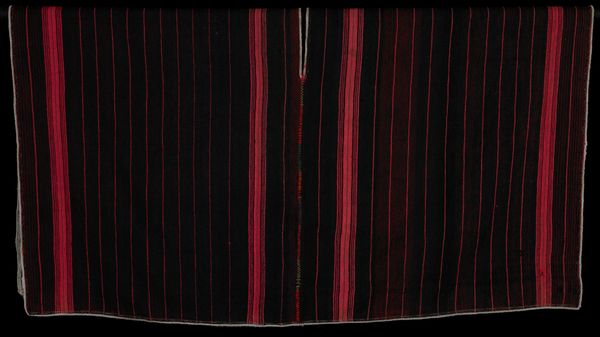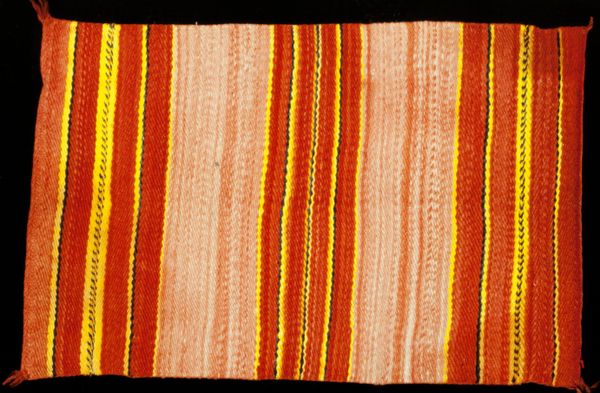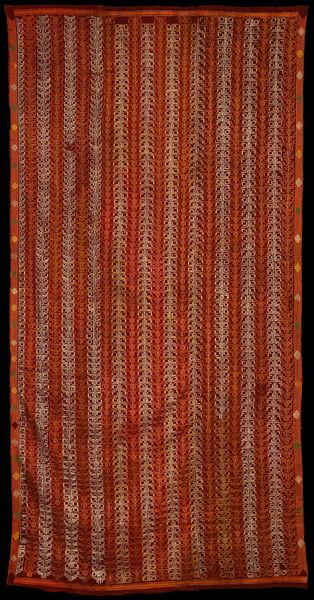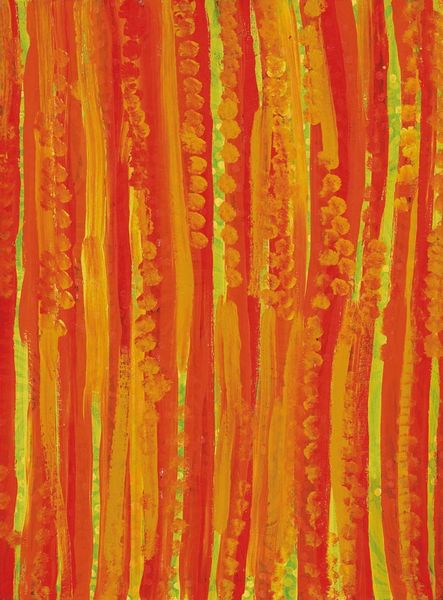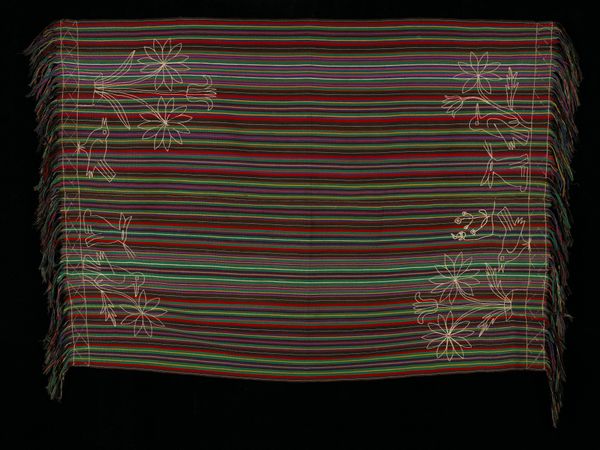
fibre-art, weaving, textile
#
tribal design
#
fibre-art
#
weaving
#
textile
#
fashion and textile design
#
geometric pattern
#
hand-embroidered
#
pattern design
#
geometric
#
pattern repetition
#
textile design
#
beaded
#
layered pattern
#
combined pattern
#
indigenous-americas
Dimensions: 93 x 5 3/8 in. (236.22 x 13.65 cm)
Copyright: Public Domain
This sash was carefully woven, probably by a Haudenosaunee artist, also known as Iroquois. It’s made of wool yarn, and its red color and geometric design suggest it might have been made sometime in the 18th or 19th centuries. Sashes of this type often played a prominent role in diplomatic exchanges between the Haudenosaunee and European colonial powers. They served as visible symbols of alliance and agreement during treaty negotiations. The designs and colors woven into these sashes weren't just decorative; they were carefully chosen to convey specific meanings and intentions, reflecting the complex relationships between different cultures. As an art historian, I’m interested in how objects like this embody cultural exchange and negotiation. To fully understand this sash, further research into Haudenosaunee weaving traditions and colonial-era diplomatic records would certainly be needed. By looking at the sash through this lens, we can appreciate the role of art as a form of historical communication and cultural expression.
Comments
No comments
Be the first to comment and join the conversation on the ultimate creative platform.
